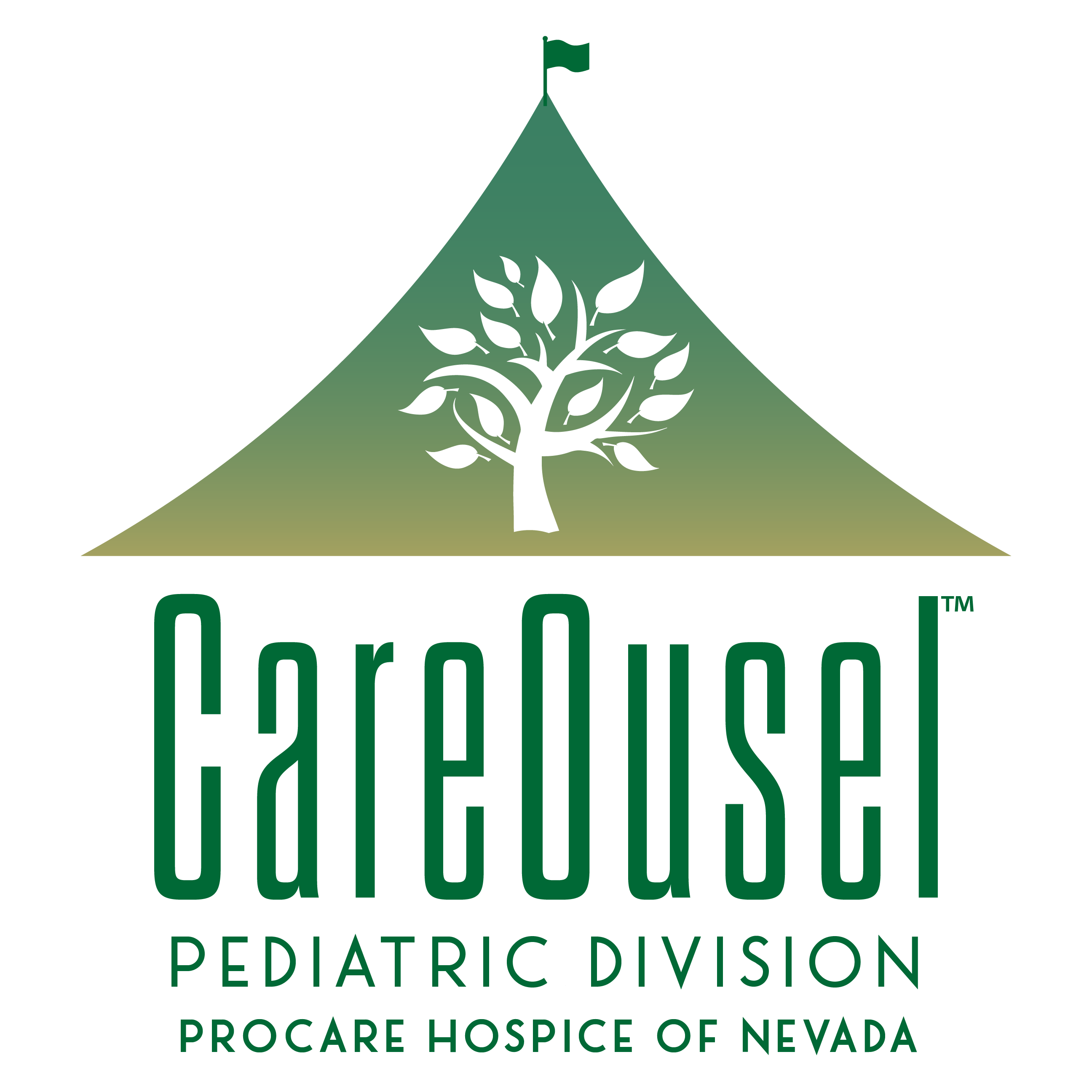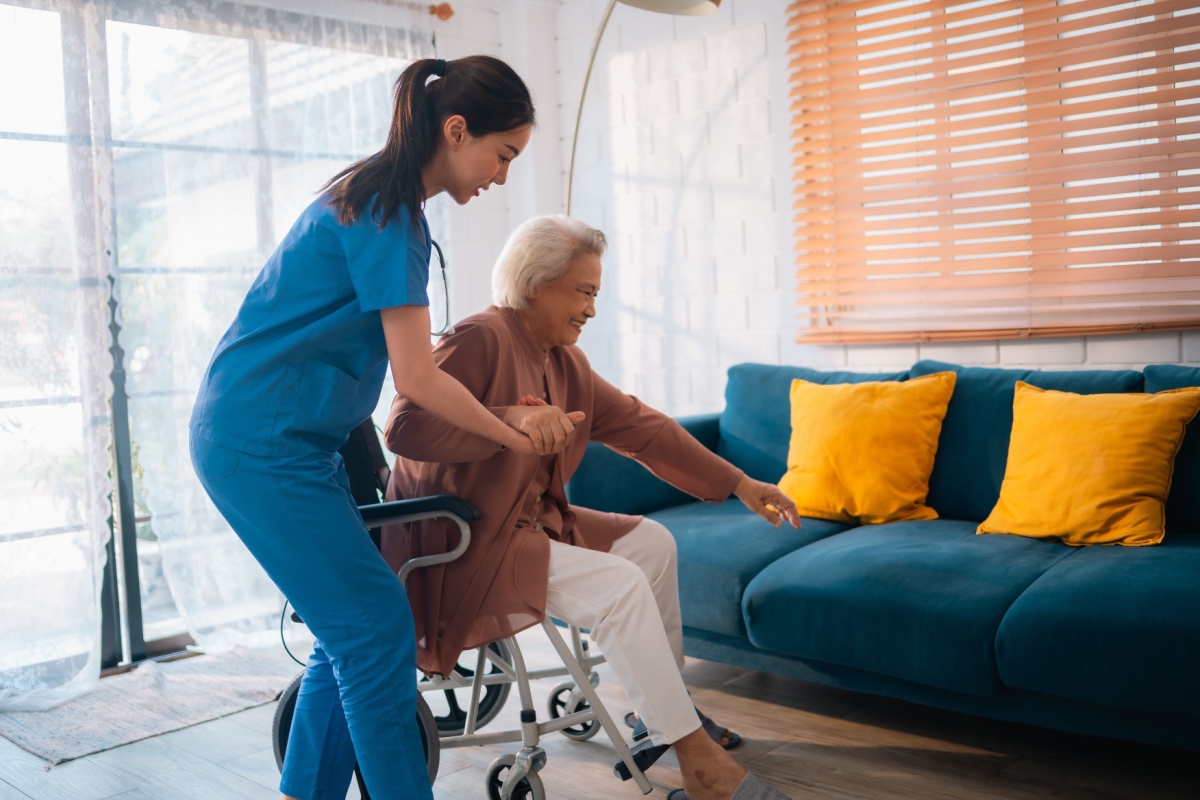When families first hear the word “hospice,” most imagine medication, nurse visits, and symptom control. But what many don’t expect, and often don’t realize until they’re deep in the experience, is just how much hospice helps with everyday care. Bathing, grooming, using the restroom, changing clothes, brushing teeth, and getting comfortable in bed. These are the tasks that matter just as much to a person’s dignity and comfort in the final chapter of life.
Table of Contents
- Daily Care in Hospice
- Bathing and Hygiene Support: More Than Just Cleanliness
- Toileting, Incontinence, and Mobility Assistance
- Supporting Meals and Oral Care
- Adjusting Care as Needs Change
- Helping Families Feel Less Overwhelmed
- ProCare Hospice of Nevada Is Here to Help
- Frequently Asked Questions
Daily Care in Hospice
Hospice care goes far beyond medications and symptom control. It includes the human side of comfort, the things that keep someone feeling clean, safe, and seen. Daily care refers to all the essential tasks that become more difficult when a person’s energy fades. That includes help with bathing, getting dressed, brushing teeth, using the restroom, eating, repositioning in bed, and keeping skin healthy.
These may sound simple, but they can quickly become overwhelming for both patients and caregivers. Many family members aren’t sure what’s safe, what’s normal, or how to help without causing discomfort. That’s where hospice steps in.
Bathing and Hygiene Support: More Than Just Cleanliness
Bathing in hospice isn’t just about keeping the body clean, it’s about easing discomfort, preventing infections, and honoring the patient’s dignity. Depending on the person’s mobility and energy level, our Certified Nursing Assistants (CNAs) provide sponge baths, bed baths, or help with getting into a shower or tub. These visits are scheduled based on each patient’s needs and preferences, typically several times a week.
In addition to bathing, our team assists with hair care, shaving, skincare, and dressing. These moments of care often offer more than physical relief. They’re opportunities for patients to feel human and seen again, even as their condition changes.
For those who are no longer alert or communicative, bathing still matters. A warm washcloth, gentle touch, and soothing voice can bring calmness during an otherwise vulnerable time.
Toileting, Incontinence, and Mobility Assistance
As strength declines, tasks like using the restroom, moving between bed and chair, or even adjusting positions become difficult. Hospice provides practical, non-judgmental help with all of these. CNAs and nurses are trained to support with toileting routines and incontinence care in a way that protects the patient’s comfort and privacy.
In some cases, medical tools like commodes, catheters, or absorbent underpads are introduced to ease discomfort. These decisions are always explained carefully, with respect for the family’s concerns and the patient’s dignity. Our team also helps with gentle repositioning to prevent pressure sores, using supportive pillows and medical equipment as needed.
Mobility support, helping a patient sit up, walk to the restroom, or safely transfer to a chair, is another part of daily care that becomes increasingly important. Our team focuses on comfort and safety, while adjusting care plans as needs shift over time.
Supporting Meals and Oral Care
For patients who are still eating or drinking, meal support is another area where hospice steps in. Whether it’s helping with feeding, monitoring swallowing issues, or preparing easy-to-eat options, our team makes sure nourishment remains safe and comforting.
At later stages, the focus may shift away from nutrition and toward comfort. If a patient is no longer eating much, we help family members understand what’s normal and when it’s okay to stop focusing on full meals. We also provide regular oral care to prevent dryness, discomfort, and infection, especially for those who are bedbound or receiving oxygen.
Even small efforts like moistening the mouth or applying lip balm can make a big difference in how a person feels.
Adjusting Care as Needs Change
What works one week may not feel right the next. Hospice is not a fixed routine, it’s a flexible, evolving service that adapts to what each patient needs, day by day.
As someone’s condition progresses, our team reassesses their care plan regularly. Bathing schedules may be adjusted. New tools or equipment may be introduced. Comfort strategies may shift. Our goal is to keep patients safe, soothed, and as comfortable as possible.
If family members have questions or notice changes, we welcome those conversations. You don’t have to navigate this on your own.
Helping Families Feel Less Overwhelmed
When personal care falls to family, it can feel overwhelming, especially for those who have never had to help someone bathe or manage incontinence. These moments can be physically exhausting and emotionally heavy. Many caregivers worry they’re doing it wrong, or worse, hurting the person they love by accident.
Our team not only provides the care itself, but also supports caregivers. We can show you safer ways to help, answer questions you may feel too embarrassed to ask, and even step in entirely so you can take a breath. If needed, respite care is available to allow caregivers to rest for a few days while we provide full support at our in-patient facility.
This care is about you too. Hospice surrounds the whole family, not just the patient.
ProCare Hospice of Nevada Is Here to Help
Bathing your loved one. Helping them to the bathroom. Figuring out how to keep them clean, safe, and comfortable when everything feels fragile. These are the things most families don’t plan for, but they matter so much when you’re in the middle of it.
That’s why this kind of support is a central part of hospice. It’s not extra. It’s not optional. It’s care that brings real relief on the hardest days.
At ProCare Hospice of Nevada, we walk with you through it. Not just with medical expertise, but with hands-on help and quiet presence when things feel overwhelming. If you’re unsure what kind of care your loved one needs, or how much help you’re allowed to ask for, reach out to your team today. You can call us at (702) 380-8300 or contact us here. We’re here to help, whenever you need us. Day or night.
Frequently Asked Questions
- How often does hospice help with bathing?
This varies by patient. Most receive bathing assistance several times a week, but it’s flexible and based on what feels right for the person receiving care.
- Does hospice help with things like changing clothes or brushing teeth?
Yes. Our team supports with all aspects of personal care—dressing, grooming, skincare, oral hygiene, and more.
- What if my loved one refuses help or feels embarrassed?
Our team is trained to approach these situations with patience and respect. We adjust our approach based on each individual’s comfort level.
- Will hospice help if my loved one becomes incontinent?
Yes. Incontinence care is part of our support. We help with supplies, skin care, and any necessary tools to keep the patient clean and comfortable.
- Is this kind of care available in all settings?
It is. Whether your loved one is at home, in assisted living, or another care setting, we bring daily care services to wherever they are.



 Back To Top
Back To Top